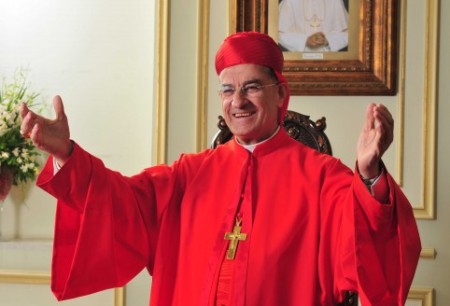
by thearabweekly.com -- PARIS – President Emmanuel Macron should freeze suspect assets held by Lebanese officials in France to break a “political-economic mafia” that has plunged Lebanon into crisis and misery, an open letter said Tuesday. Macron called for radical reform in Lebanon after the deadly Beirut port blast and has expressed exasperation at the lack of change, as the former French mandate territory remains mired in political stalemate. Analysts have said that sanctions such as asset freezes could be the most effective lever for Paris to pressure Beirut, even if France has so far not explicitly indicated it is ready for such a measure. Macron should issue instructions “with a view to implementing the legal mechanism for freezing assets of doubtful origin held in France by Lebanese political and economic leaders,” said the letter published in France’s Le Monde daily signed by more than 100 Lebanese civil society figures. It argued that a “political-economic mafia is responsible for the misery, hunger and insecurity from which more and more Lebanese suffer.”
The letter suggested that such a legal process should draw on the precedent set over ill-gotten assets owned in France by some African leaders and former Syrian vice president Rifaat Assad. “This endemic corruption on a grand scale has scandalously enriched Lebanese political leaders” by emptying the treasury and embezzling aid sent after the civil war, the letter alleged. It was signed by lawyers, doctors, journalists and activists, including prominent political scientist Karim Emile Bitar, former Lebanese culture minister and UN Libya envoy Ghassan Salame and former MP and TV host Paula Yacoubian.

by techxplore.com -- Hashem Osseiran -- In a break from social media mud-slinging and Lebanon's perennially polarised debates, audio app Clubhouse is hosting a new kind of conversation in the crisis-hit country. Users say it is achieving a little miracle: free-wheeling political discussions across party lines which don't descend into blows. Lebanese both at home and abroad have welcomed the break from the acrimony dominating TV and social media platforms. "Clubhouse helped people on opposing ends of the political spectrum understand each other's perspectives," said Paula Naoufal, a 25-year-old journalist active on the app. "It gave people a space to listen, unlike Twitter and Instagram, which aren't as interactive."
The live audio app, launched nearly a year ago, is accessible only on Apple mobile devices—but the coronavirus pandemic has boosted its popularity in the Middle East. Syrian users have used it to discuss the 10-year-old conflict and life in exile, while Saudis tackle political reform, racism and transgender rights, despite growing fears of state surveillance. In cash-strapped Lebanon, Clubhouse is a something of a premium service, with an iPhone costing more than ten times the minimum monthly wage. But experts, journalists and expats active in its virtual "rooms" say they are carving out a space for constructive conversation between people who either never engage with each other or are usually at odds. "Clubhouse has become a safe space for people to hear each other and more importantly learn from each other and about each other," said Joe Khawly, a Lebanese journalist living in Washington DC. "It's creating a space where people from different religions and political affiliations are able to virtually meet and talk directly."
Out of the bubble

by Doreen Abi Raad -- cruxnow..com -- BEIRUT — In Easter messages, two Catholic patriarchs criticized the situation in Lebanon and urged the faithful to cling to the hope of the Resurrection despite the prevailing darkness. One of the patriarchs also visited Syria, where he called for the international community to lift sanctions. From Lebanon, Cardinal Bechara Rai, patriarch of Maronite Catholics, noted that “the joy of the Resurrection is mixed with tears of sadness, pain and anxiety, yet in our hearts there is a hope stronger than despair.” Pope Francis also prayed for Lebanon in his message “urbi et orbi” (to the city of Rome and the world) on Easter at the Vatican. With a collapsing economy and more than 50 percent of the Lebanese now below the poverty level, Lebanon has been without a government since the resignation of the previous one in the wake of the deadly blast in August at the port of Beirut.
Rai denounced “those who intentionally block the formation of the government and paralyze the state.” “There are parties that adopt a methodology of demolishing the constitutional, financial, banking, military and judicial institutions, one after the other,” he said from Bkerke, the Maronite patriarchate north of Beirut. It is “now clear that we are facing a plan which aims to change Lebanon, its system, its identity, its formula and its traditions.” The cardinal reiterated his calls for the neutrality of Lebanon and for holding a U.N.-sponsored international conference to save the country. Such a conference, he stressed, “will give Lebanon a new life by stabilizing its entity, its international borders; by renewing the national partnership; by strengthening its sovereignty, its independence and its army; implementing international decisions; and resolving the issues of refugee and displaced Syrians.” With a native population of around 4.5 million, of which less than 40 percent is Christian, Lebanon has absorbed approximately 1.5 million Syrian refugees. In his Easter message from the patriarchate in Beirut, Syriac Catholic Patriarch Ignace Joseph III Younan said people in Lebanon “are groaning under the weight of hunger, want and poverty.” “Lebanon deserves to be ruled by the elite of its citizens and not a corrupt and fundamentalist clique hiding behind its sects to wreak corruption, theft, torture and abuse of its citizens and people,” he said.

by naharnet -- Maronite Patriarch Beshara al-Rahi on Sunday said that it would be unreasonable for the Lebanese to “waste all their sacrifices and martyrs for the sake of domestic caprices and foreign schemes.” “That’s why we invite all Lebanese for a moment of conscience in order to renew recognition of Lebanon as a final homeland, and to translate this recognition into ultimate allegiance to the Lebanese homeland and to an independent, legitimate and free state,” al-Rahi said in his Easter Mass sermon. He lamented that Lebanon has reached the current wretched state of affairs due to “the poor political performance, the lack of maturity in governance and the negativity of political choices.” He added: “How can we celebrate the holidays while half of the Lebanese people are in a state of hunger and some of them are below poverty line? “How can we rejoice while our vibrant manpower is emigrating without looking behind, including university graduates, doctors, engineers and specialists?” al-Rahi wondered.
Khazen History


Historical Feature:
Churches and Monasteries of the Khazen family

St. Anthony of Padua Church in Ballouneh
Mar Abda Church in Bakaatit Kanaan
Saint Michael Church in Bkaatouta
Saint Therese Church in Qolayaat
Saint Simeon Stylites (مار سمعان العامودي) Church In Ajaltoun
Virgin Mary Church (سيدة المعونات) in Sheilé
Assumption of Mary Church in Ballouneh
1 - The sword of the Maronite Prince
2 - LES KHAZEN CONSULS DE FRANCE
3 - LES MARONITES & LES KHAZEN
4 - LES MAAN & LES KHAZEN
5 - ORIGINE DE LA FAMILLE
Population Movements to Keserwan - The Khazens and The Maans
ما جاء عن الثورة في المقاطعة الكسروانية
ثورة أهالي كسروان على المشايخ الخوازنة وأسبابها
Origins of the "Prince of Maronite" Title
Growing diversity: the Khazin sheiks and the clergy in the first decades of the 18th century
Historical Members:
Barbar Beik El Khazen [English]
Patriach Toubia Kaiss El Khazen(Biography & Life Part1 Part2) (Arabic)
Patriach Youssef Dargham El Khazen (Cont'd)
Cheikh Bishara Jafal El Khazen
Patriarch Youssef Raji El Khazen
The Martyrs Cheikh Philippe & Cheikh Farid El Khazen
Cheikh Nawfal El Khazen (Consul De France)
Cheikh Hossun El Khazen (Consul De France)
Cheikh Abou-Nawfal El Khazen (Consul De France)
Cheikh Francis Abee Nader & his son Yousef
Cheikh Abou-Kanso El Khazen (Consul De France)
Cheikh Abou Nader El Khazen
Cheikh Chafic El Khazen
Cheikh Keserwan El Khazen
Cheikh Serhal El Khazen [English]
Cheikh Rafiq El Khazen [English]
Cheikh Hanna El Khazen
Cheikha Arzi El Khazen
Marie El Khazen